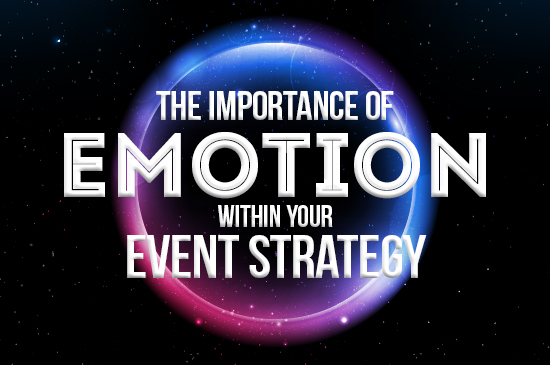Skift Take
1 Return on Involvement
Measuring the success of an event is almost always done by numbers: tickets sold or number of performances staged. I come from the world of sport events, having worked at the Olympic Games, and I know how important it is to have a full stadium. However, counting people and setting a record is not enough to declare an event a success.

Think of a wedding: a large and glorious room filled with hundreds of guests. Is the bridal party a success? Not really, if people are elegantly dressed, listening to nice music and eating good food but completely bored. The most memorable wedding I have attended is that of my dearest friend. There were six of us and we were very happy.
Experience, First and Foremost
Some years ago, Philipp Hasenbein, the CEO of the sports marketing agency Sportfive, stated during a symposium on hospitality in German football stadiums that “our problem is not to sell tickets, because we sell out in every category. Today, our biggest challenge is to enhance the experience. ”
The word “experience” is very fashionable today, because therein lies the key to success. We are human beings. We are rational (Econs) and we are emotional (Humans). We must take this into account when we organize an event and even more so when we design the experience that we want to offer our guests.
Marketing is nothing new. The concept of lovemark builds on the values a brand stands for instead of the functions of the product. We fall in love with a brand, even before its use.
An Event is Not Just a Service
Let’s apply this idea to events: the product becomes a service offered to the viewers (entertainment, conference, trade show). Selling a ticket is a rational transaction belonging to the service economy. However, we don’t just sell a piece of paper, but a moment of life the viewer accesses with that ticket. This is the experience economy. Joseph Pine and James Gilmore explained this concept in the “Experience Economy” published several years ago.
Naturally, sporting events have an advantage because they already deliver emotion and passion. But even a conference can do it, too. Just think that they are not customers, or as we say in economics, Econs, sitting in the audience. They’re humans.
Here are 5 tips to consider to maximize the attendee experience at your events
An event isn’t just about service delivery. Not in a sporting event, an artistic show, or a convention. The service is only the minimum necessary to ensure that things go well. To quote Kevin Robert, founder of the lovemark concept, it’s not enough to measure ROI, return on investment. We must also focus on ROI, return on involvement. A happy viewer adds value to the entire event.
2 Experiencescape
An event always takes place within a clearly defined space. It is like a landscape, a large theater where a performance is staged: a field of competition with its spectator stands, the conference stage with its audience, but also a small meeting room with a projector and a few chairs for the audience.
Size doesn’t matter, what counts is the set up. For instance, VIP hospitality boxes in German football stadiums are reserved VIP areas that are nowadays refurbished to create a true corporate experience. For instance if the sponsor produces bolts the VIP room is set up as a workshop. If the sponsor sells ketchup, the VIP area turns into an exclusive fast food joint.
3 Tell a Story
Daniel Kahneman, a psychologist and 2002 economics Nobel Prize winner, tells us that humans need stories to make sense of their experiences. Leading the viewer in an experience also means telling a story.
In sports it’s easy, because sport is a natural carrier of stories. Yet, if we think of the Olympic Games, there is no doubt that the Olympic spirit has masterfully been built over the years: nations meeting in peace, the stories of athletes who come from difficult or war-ridden worlds, suffering and glory. These are the stories that excite every Olympic spectator. They are stories, and their strength is that they touch our soul, our need for sharing, our search for myths. And at the same time, these stories give meaning to our lives, because we too are part of this same world and have our own dreams.
4 Authenticity
The story we tell has to be authentic, but not necessarily true. Disneyland tells stories that are not true, but they are staged as if they were, and this is because there is a great internal consistency. Authenticity means that the story we tell and the scenery that we build must be in harmony with our event, and it must make sense. Viewers may also be irrational humans, but they are not stupid. It’s a bit like a novel. The story told is not real, but the book can be authentic if the plot is consistent and respectful of the reader.
5 Before, During and After
The event is not only the event. There is a before and, above all, there is an after. Unfortunately, the after of big sporting events often leaves horrendous traces: abandoned pools, dilapidated trampolines, empty buildings.
The before is often managed so poorly or hastily that one gets to the beginning not only out of breath, but unable to really broker a great experience. An event should always be considered as something magical and exceptional, divided into three stages. And in each of these, storytelling, authenticity, and emotion are important.
The wedding of my friend was exactly that. The party was only a moment, but it left a stamp on our lives forever. Because the real strength of the experience is when something changes, always, and if it does not, it means the experience was not able to touch the heart.
In Conclusion
The Legacy of an event also includes the memory of an experience. And the experience comprises the emotions lived by everyone involved. Emotions affect humans. And events are made and experienced by humans. It’s not enough to do things just right, because anyone who organizes an event is an emotions broker and much more than just a service provider.
 This is a guest post by Stefania Demetz. She is a CEO of the FIS Ski World Cup in Val Gardena (Italy). She worked for more than 20 years for many international sport events, like Olympics and Championships. In her blog she highlights her strong believe in an interdisciplinary approach to the job of event manager.
This is a guest post by Stefania Demetz. She is a CEO of the FIS Ski World Cup in Val Gardena (Italy). She worked for more than 20 years for many international sport events, like Olympics and Championships. In her blog she highlights her strong believe in an interdisciplinary approach to the job of event manager.





